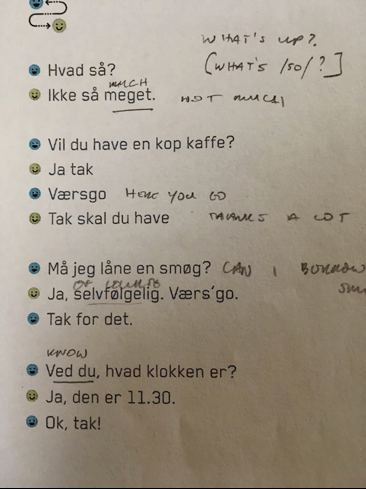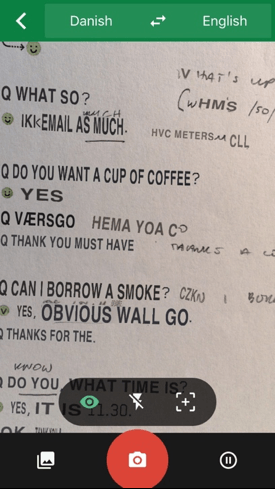Response 2 - Process or Product?
Dear Marie,
Thanks for the task. I was quite exercised by this opposition between process and product in the task you set, because I divined in it an implicit value judgement (process is better than product; to be immersed in process is to be mindful, whereas to be focused on product is to be absent from the moment, etc etc) and so I wanted to do that academic thing of unpicking the opposition. I don’t know if I have done that (deconstructed the opposition and its value judgement, I mean), but I must admit that what I have done is to make a product in middle-aged-adolescent defiance of your instructions. In other words, I confess to some irritation with this first task, because I discerned in it a didactic and even moralistic purpose. Let me admit straight away that this irritation is hypocritical, because the tasks I set are themselves likely to be didactic, but still — I couldn’t help but indulge it. But here are some thoughts, and an introduction to the object (a bad poem) I made according to your instruction to employ creative writing.
Part of my irritation with the opposition you posit between process and product is that it seems to contradict the point of parametric procedures, which are designed to generate an unexpected outcome — i.e., some sort of object or product. In parametric work, process is a ‘finding form’. Did you want me/my work to be ‘formless’? Were you asserting that amorphousness is a superior state? Anyway, I decided to design some parameters of my own in order to aim towards form.
In the task, you specify that I should use my daily activities, such as my Danish lessons, to explore the ‘in-between’. This was astute, because the experience of learning another language is powerfully ‘process-ful’ — you feel yourself to be in a preliminary, expectant but uncertain state (will I ever learn this damn language? how can I force my mouth to produce these vowels?). Your own competence is the product being aimed for, perhaps never to be completed, but in the meantime you are obliged to ‘produce’ alien sounds, navigate unfamiliar syntax, answer classroom questions you hardly understand in vocabulary you don’t have. Personally, though I have sort of managed to be a speaker of Italian, I do not enjoy this process, which is for me an anxious one (the ‘bodily sensation’ you ask me to specify is one of a nervous throb in my gut). So, the formal parameters I chose reflect this anxious sense of in-between and allowed me to generate a product in defiance of your instructions. In a sense, I avoided doing your task, and I’m dissatisfied with what I did do because what I produced and how I produced it function more as a metaphor for the state of in-between than as a formal instance of it (which would be more artistically interesting). However, here it is.
Privileged language learners with web and smartphone access now have many evolving resources to understand and study a new language. The Google Translate app even has a facility to use the smartphone camera to ‘live translate’ text. With a language like Danish, spoken by only a few million people, these translations are not always reliable, and the translations provided in English can sometimes be unidiomatic or misleading. I decided to use this live translation facility to render the short dialogues given in the units we have so far covered in my beginner Danish textbook, and to employ the results to generate a piece of writing. Here’s some of the textbook dialogue and a screenshot from Google Translate as an example:

Textbook dialogue

Google live translates
My plan was to use the whole text (reproduced in the table at the bottom of this post) to make a sort of absurdist, aleatory text, but in the event I lost my nerve and the poem that has resulted is more melancholy than anarchic. In tribute to one of the inspirations for the parametric method, the Lars Von Trier/Jørgen Leth film The Five Obstructions(2003) — or rather, to Jørgen Leth’s 1967 The Perfect Human, which inspired the later film — I restricted myself to the questions, but I left out the question marks for added ambiguity.
Some of the translations provided by Google Translate reminded me of the comic dialogue in a scene from my favourite move, Casablanca, in which two Hungarian (I think) refugees speak to Carl, their compatriot who serves table at Rick’s Café. They explain that now that they are travelling to America they are speaking only English and they perform asking the time of each other for Carl, as follows:
Husband: Sweetnessheart, what watch?
Wife: Ten watch.
Husband: Such much!?
Carl, who is rather more proficient in English, makes an uncomfortable shrug but responds kindly, ‘You will get along beautifully in America’. The title of my poem is therefore ‘Getting Along Beautifully in Denmark’, and the text is found below. Here is a recitation:
Thank you again for this task — I promise to perform the next one in less cranky fashion!
Alan
Getting Along Beautifully in Denmark
What’s your name
What’s your name to last name
How is it going
So what—what about you
Do you want a cup of coffee
Can I borrow a smoke
Is this your or my key located on the table
Do you know what time is
What time do you free today
Have you free tomorrow evening
What time you will meet
When do you meet
Do you know what time is
Yes, I want at 20 your work -
Where do you work
And where do you work
Do you think about your work
Are you happy…
You can take my watch on Thursday
You need to work on Thursday
You can then take my custody Friday
What about your boss works you always on Sunday
What made you Sunday
How long have you been work here
You can be little longer today
We need to work out later
Are you happy…
Table of translations
| What’s your name ten in first name | Patrawadee |
| Uh, how to you spell you the | P-A-T-R-A-W-A-D-E-E |
| What’s your name to last name | Rasmussen |
| Good morning | Good morning |
| How is it going | Quietly. What about you |
| Well | |
| Thank you for today | Even thank you |
| See you on Monday. Have a nice weekend! | Thank you in the right way |
| So what | Not so much |
| Do you want a cup of coffee | Yes |
| Værsgo | Thank you must have |
| Can I borrow a smoke | Yes, obvious wall go. |
| Thanks for the | |
| Do you know what time is | Yes, it is 11.30 |
| Ok, Thank you! | |
| What time do you free today | Cis 16 |
| We need to work out later | Yes, we can do that. |
| You can be ldt longer today | Not, unfortunately I can not. |
| I must download children at 16.30 | |
| Have you free tomorrow evening | Yes, why |
| Wuld you with the café | Yes, I want at 20 |
| It sounds fine | |
| Where do you work | I work in an IT company. And where do you work |
| I work at a nursery. | |
| What time you will meet_ | I meetings at 9. What about dig When do you meet |
| I meetings at 7. | Reach, it was early! |
| Hilah do you think about your work | I think it is interesting. |
| Are you happy your work | Yes, but it is a also a little stressful sometimes. |
| How long have you been work here | Lay |
| How long you need to be in internship here | 2 months |
| To get every day | No, I come ‘s days a week |
| Goes on language school 2 days a week | Reach ok, well welcome ten |
| Are you happy your internship | Yes, I have some really sweet colleagues |
| It sounds good. What about your boos | He is very nice. |
| You need to work on Thursday | No, first on Friday. |
| You can take my watch on Thursday. | Yes, you can then take my custody Friday |
| I can | Ok, so will exchange we! |
| Is this your or my key located on the table | It is your – I have my in ommen |
| Oh, that was good – I thought I had lost the | |
| If scarf is the | It is not your |
| No, I think it is Linda’s | No, she has its scarf on. |
| Ok, it is perhaps my… | |
| What is called the parent in the past tense | It is called met |
| What made you Sunday | I was at work all day |
| Works you always on Sunday | Not. I tend not to work on weekends. |
